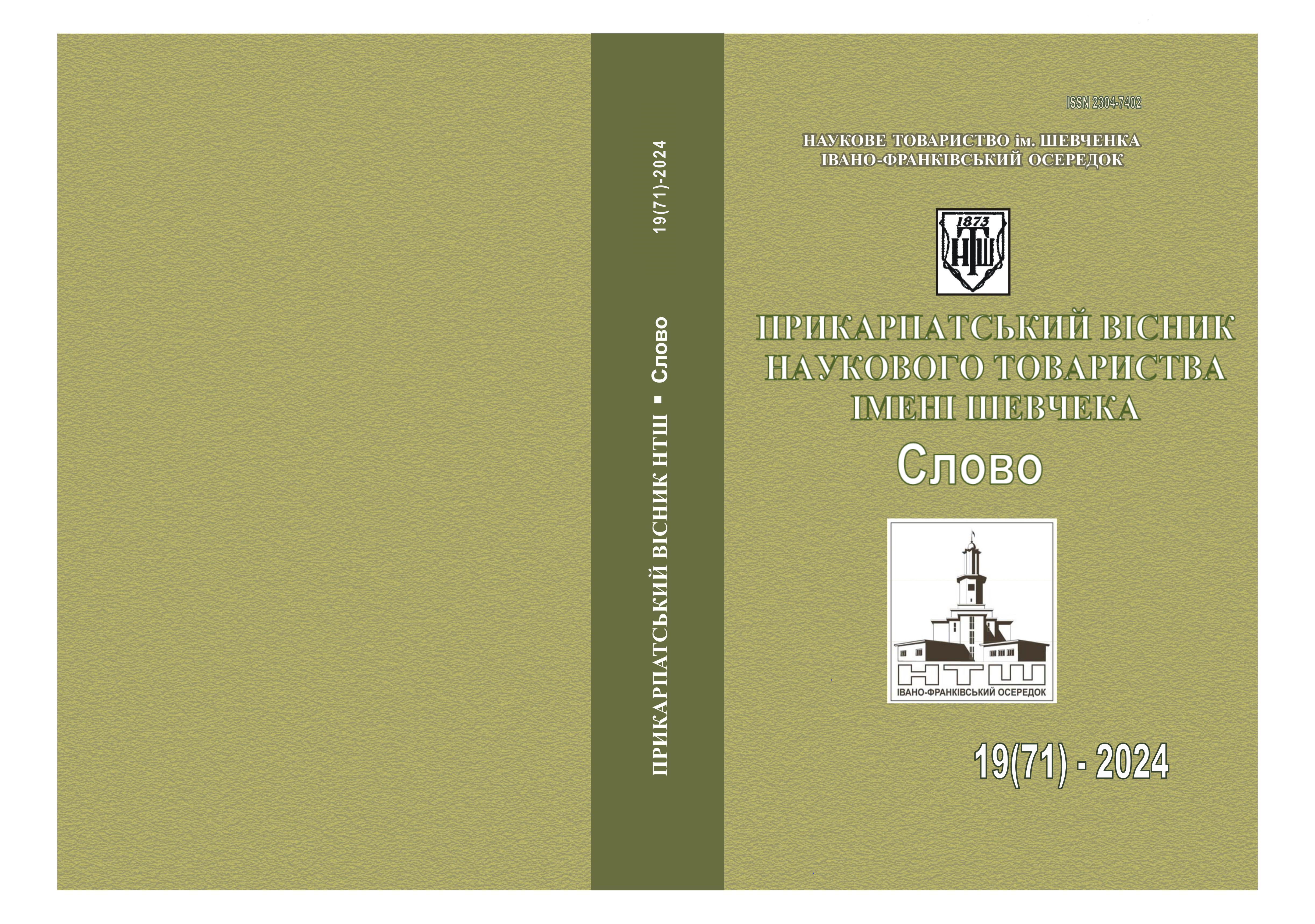LANGUAGE ASPECT OF SLANG VOCABULARY IN UKRAINIAN AND POLISH SOCIAL NETWORKS
DOI:
https://doi.org/10.31471/2304-7402-2024-19(71)-193-204Keywords:
slang, youth, communication, abbreviations, technology, social networks, linguistic innovation, cultural influences, abbreviations, digital communication, emojis, Internet broadcasting, globalization of language, Instagram, Facebook, Twitter.Abstract
The research thesis highlights the peculiarities of the linguistic aspect of slang vocabulary in Ukrainian and Polish social networks. Through the youth dialect, as a popular code of modern subcultures of both Ukraine and Poland, one can learn about the modern means of derivation of these languages, as well as the peculiarities of Internet communication of young people. The role of English-language abbreviations in the development of modern speech of Ukrainian and Polish youth is emphasized, including abbreviations, words shortened by cutting off the last syllables, combinations of letters and numbers, new constructions resulting from the omission of vowel sounds, etc. It is emphasized that in our time it is difficult not to notice the rapid development of communication and information technologies that have transformed human communication. With the advent of social media, a new stage of communication has begun, opening up powerful media opportunities and drawing attention to new trends in communication processes. Communication in cyberspace is a subject of interest to linguists, sociologists, anthropologists, and media experts alike.
One of the main parts of the article is the analysis of various aspects of the impact of social networks on language in the Ukrainian and Polish contexts. The use of abbreviations, abbreviations, emojis, and slang in these networks is considered, and how these linguistic phenomena reflect cultural influences and specific features of communication. The issue of language adaptation and the influence of the English language on communication in social networks was also considered.
References
Бергельсон М.Б. Мовні аспекти віртуальної комунікації. Вісник МГУ. Лінгвістика і міжкультурна комунікація. 2002. № 1. С. 55–67.
Берестовська Е.М. Молодіжний сленг: формування і функціонування. Питання мовознавства. 2011. №3. С. 32-41.
Каптюрова В. В. Сленг соціальних мереж та мікроблогів. Лінгвістика ХХІ століття: нові дослідження і перспективи. 2012. С. 134-140.
Ніколаєва T.M. Лексико-семантичні аспекти мови соціальних мереж. Закарпатські філологічні студії. Випуск 9. Том 2. 2018. С. 96-101.
Руденко М. Ю. Арго, жаргон і сленг у європейському й американському мовознавстві: історія і сучасний стан дослідження: дис.канд. філол. наук. 10.02.15 - загальне мовознавство. Філолгічні науки. Слов’янськ. 2019. 270 с.
Синюта О. Роль соціальних мереж у зміненні мов. International scientific survey journal. 2018. Т. 1, № 3. С. 1-13.
Цьолик Б., Круглій О. Молодіжний соціолект як популярний код сучасної субкультури в Польщі, «Україна та Польща: минуле, сьогодення, перспективи» 2018, t. 8., s. 31-35.
Чала А. Г. Мовний аспект сленгової лексики в українських і польських соціальних мережах. Integration of Education, Science and Business in Modern Environment: Summer Debates. Інтеграція освіти, науки та бізнесу в сучасному середовищі: літні дебати : мат-ли V Міжнар. наук.-практ. інтернет-конф. ( Дніпро, 3-4 серпня 2023 р.). Дніпро : ФОП Мареніченко, 2023. С. 528-531
Witosz B. Dyskurs i stylistyka. Katowice, 2009. S. 59.

